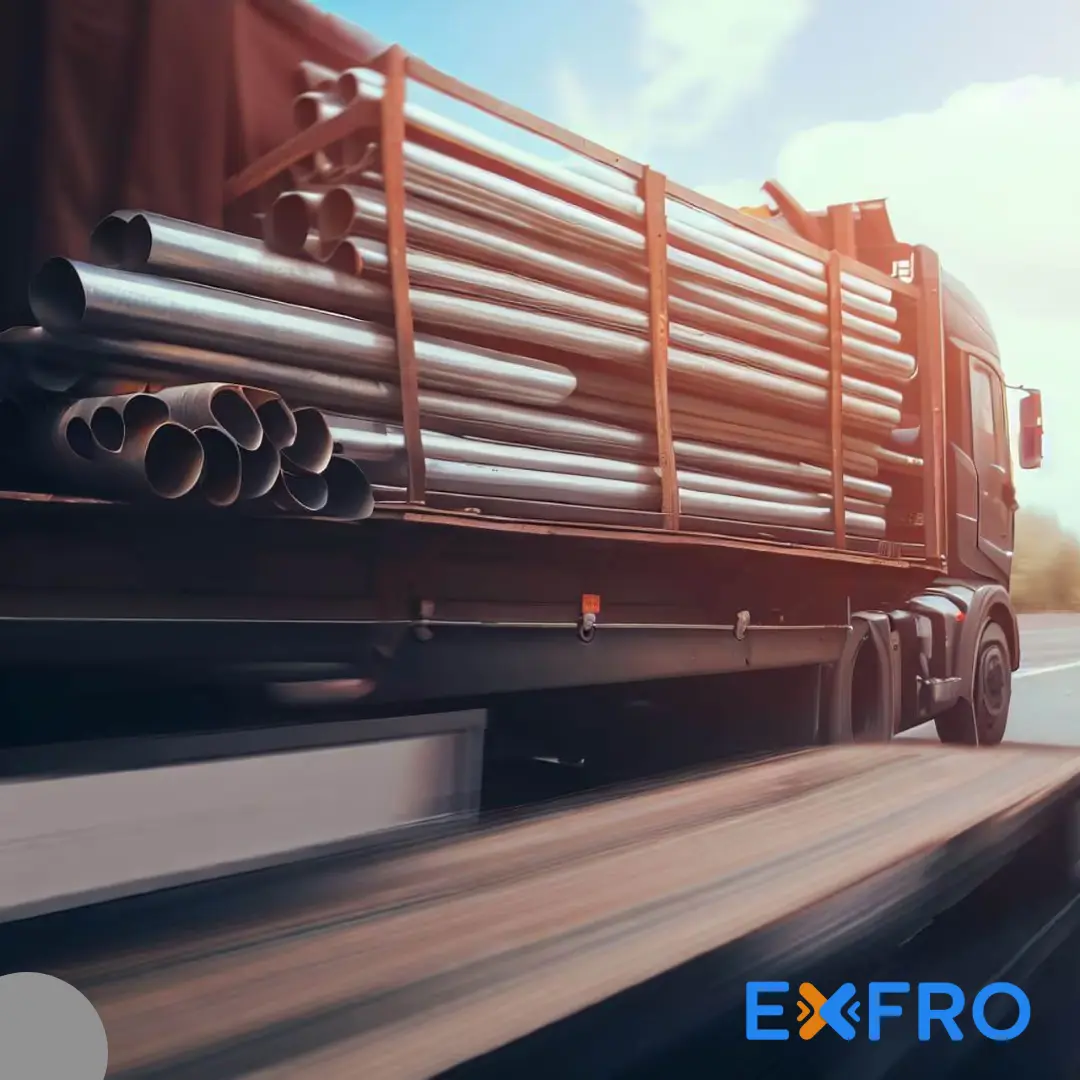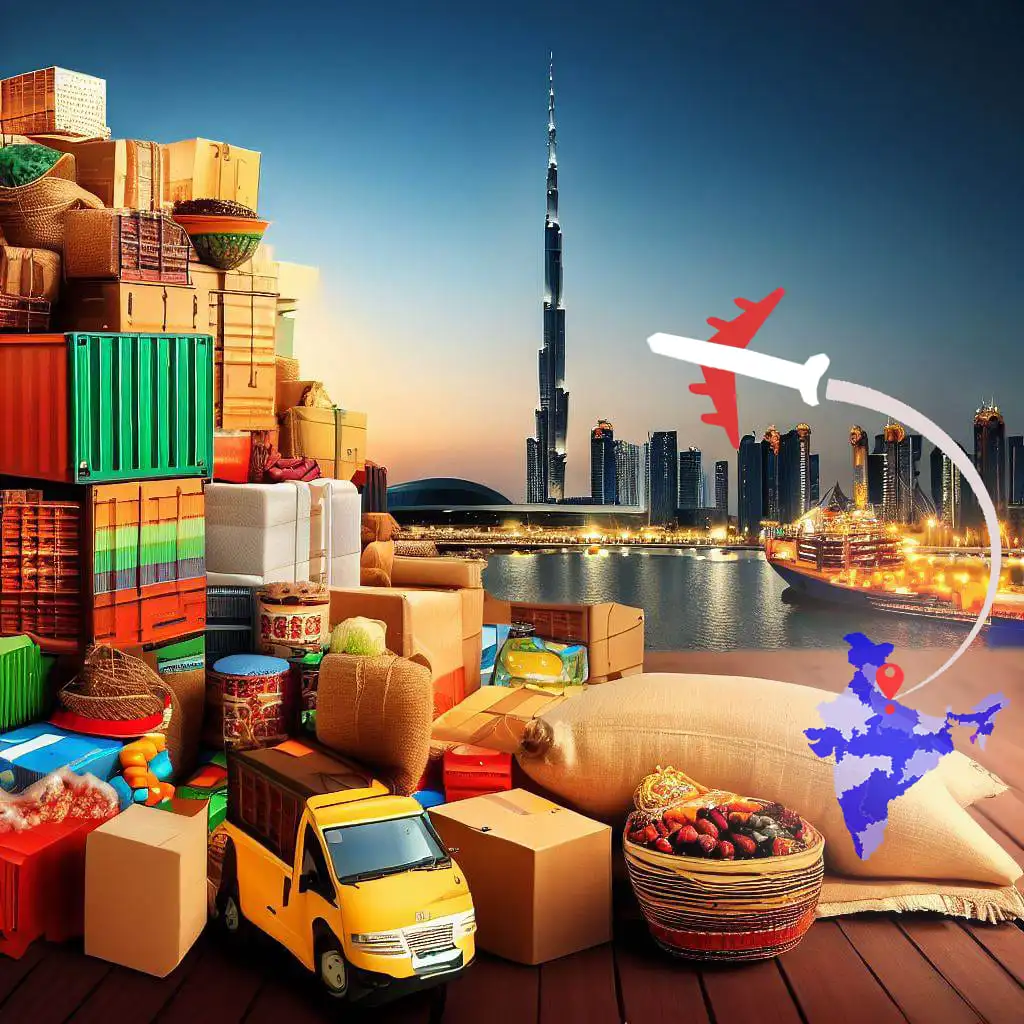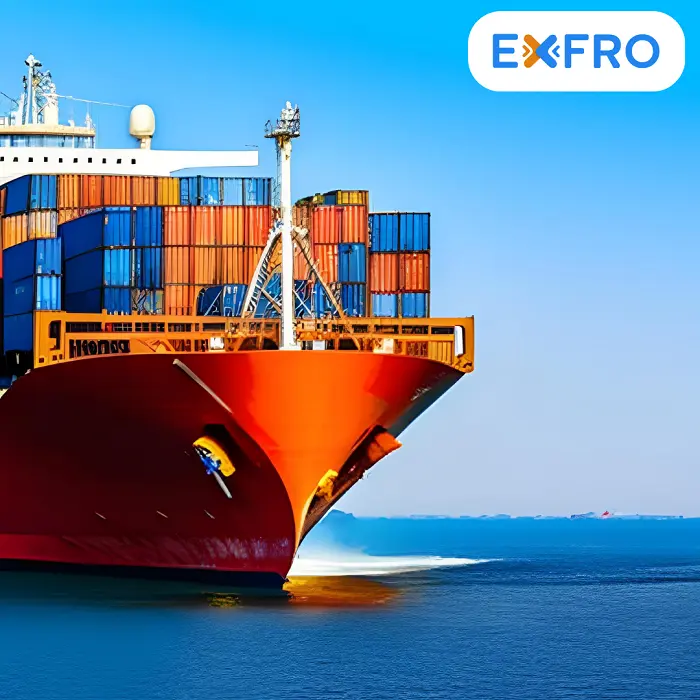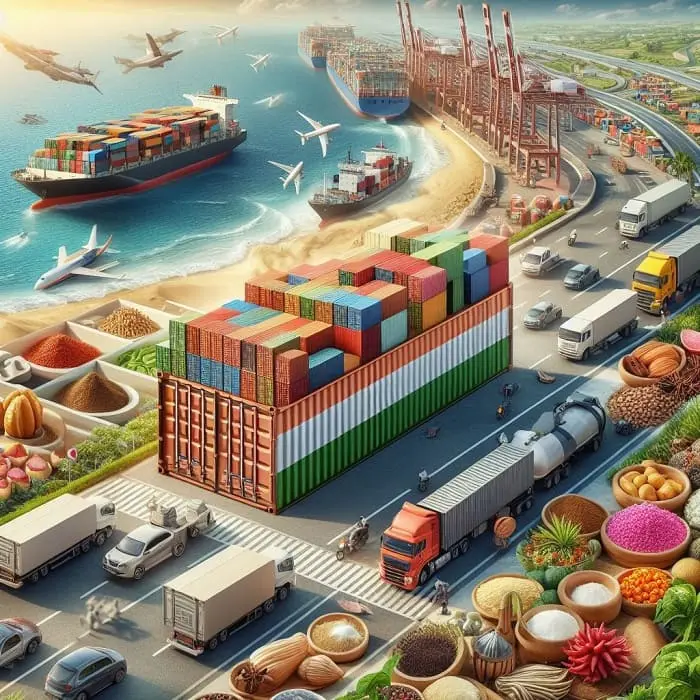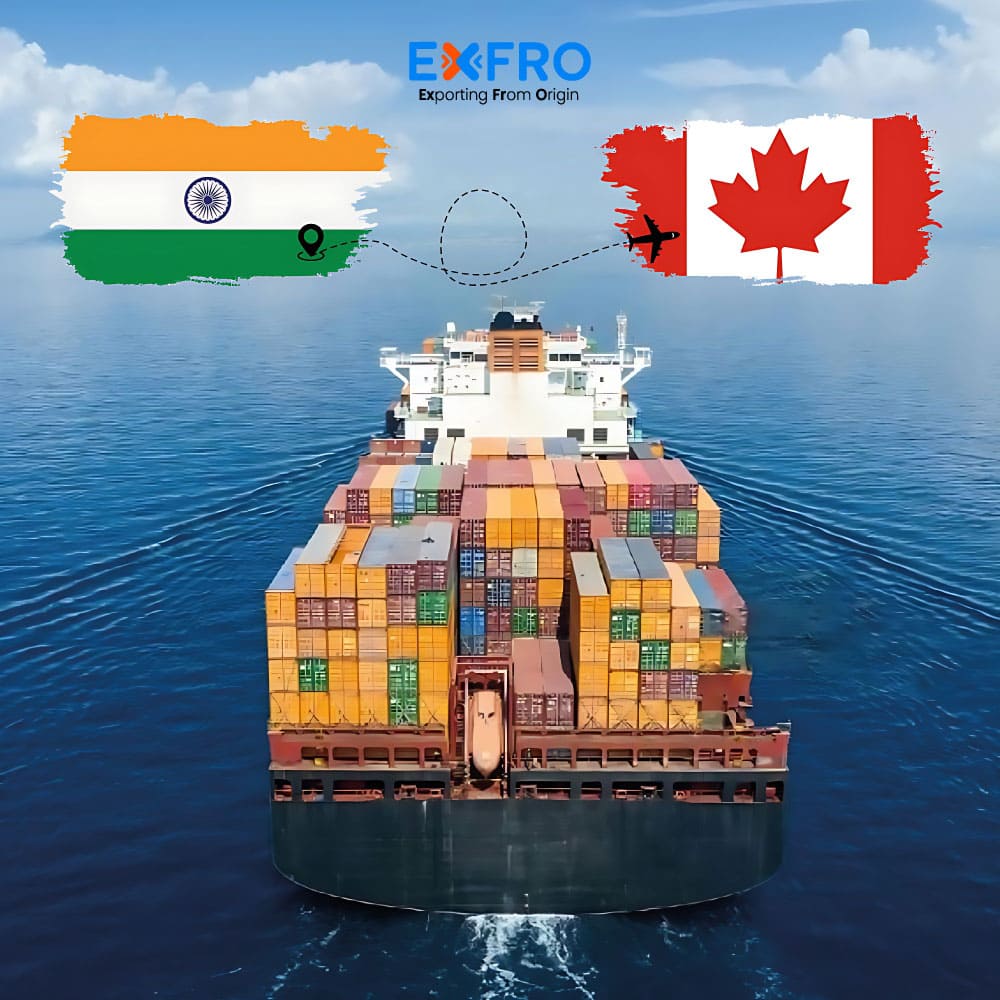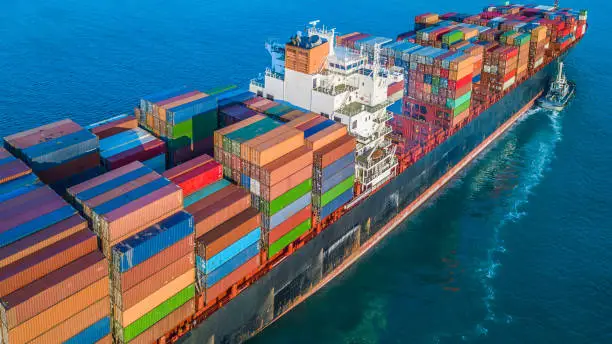How to import products from India to the UK

Importing products from one country to another opens up exciting opportunities for businesses seeking to expand their product offerings and tap into new markets internationally.
For those interested in importing products from India to the UK, it is essential to navigate the complexities of international trade and understand the necessary steps involved.
In this blog, we will walk you through the process of importing products from India to the UK, covering everything - from research and supplier selection to customs procedures and logistics.
Whether you're a seasoned importer or new to the world of international trade, this blog will provide you with valuable insights and practical tips to make your import journey a success.
So, let's delve into the step-by-step process of importing products from India to the UK and explore the key factors to consider.
Trade between India and UK
The UK-India commercial connection has a long history and is still strong today. With an emphasis on a range of industries, including textiles, pharmaceuticals, information technology, the automobile industry and more, both nations have been engaged in bilateral commerce.
One of India's main commerce partners is the UK, and continuing attempts are being made to improve trade relations between the two countries.
India has become the fastest growing economy in the world in recent years and exports products on large scales from various categories such as gems and jewelry, petroleum products, pharmaceuticals products, etc.
India imported $8.43 billion from the UK and exported $10.27 billion to the country in the fiscal year 2022–23.
Bilateral Trade Agreements
- India and the UK have established several bilateral trade agreements to promote trade and economic cooperation.
- The key agreement is the India-UK Joint Economic and Trade Committee (JETCO), which serves as a platform for high-level discussions on trade and investment.
Trade Volume and Balance
- Bilateral trade between India and the UK has been growing steadily. In recent years, both countries have witnessed an increase in trade volume.
- India is one of the UK's major trading partners outside of the European Union.
- However, the trade balance has traditionally been in favor of the UK, with India importing more from the UK than exporting.
Key Export and Import Sectors
- India's main exports to the UK include textiles, garments, pharmaceuticals, engineering goods, and information technology services.
- The UK exports to India comprise of machinery, electrical equipment, chemicals, transport equipment, and professional services.
Investment and Economic Cooperation
- Economic cooperation between India and the UK extends beyond trade. There are significant investments and collaborations between businesses in both countries.
- The UK is one of the largest sources of foreign direct investment (FDI) in India, particularly in sectors such as finance, manufacturing, and technology.
[ Know How to import products from India to the USA?]
Major products imported to the UK from India
The UK imports a wide variety of goods from India. For Indian exporters, the UK market provides enormous potential.
Textiles, apparel, pharmaceuticals, equipment, automotive parts, chemicals, jewelry, and pharmaceuticals are just a few of the top exports from India to the UK.
Top import items to UK from India
- Machinery and Equipment
- Pharmaceuticals
- Gems and Jewellery
- Textiles and garments
Key steps involved in the process of importing from India to UK
Understanding the import process is essential when importing products from India to the UK. Here are the key steps involved:
Research and Identify Products
Deciding on the specific goods you want to import from India. Analysing the UK market for the chosen products in order to determine the demand, competition, and potential profitability.
Supplier Selection
Identifying reliable Indian suppliers who can deliver the required goods at reasonable costs. Taking into account variables like product quality, reputation, capacity for production, and their ability to meet your requirements.
Import Regulations and Documentation
Learning about the UK's and India's requirements for import permits and other paperwork. Ensuring that all laws governing customs, licensing, labelling, and any necessary permits or certifications for particular products are followed.
Shipping and Logistics
Coordinating logistics and shipping services to move the goods from India to the UK. Choosing a shipping agent or freight forwarder, choosing a mode of transportation (such as air, sea, or land), and managing the required paperwork, such as a bill of lading, commercial invoice, and packing list, are all included in this.
Customs Clearance
Contact the appropriate customs authorities in India and the UK to submit the necessary import documentation. Importing declarations, customs valuation, and product classification are a few examples of this. Pay any applicable import duties, taxes, and fees.
Import Tax and Duties
Figure out the import taxes and duties that will be charged on your imported goods. Identifying the Harmonised System (HS) code of your products will be necessary as that will help you find out the exact duty rates. Make sure that the goods are valued accurately and adhere to the VAT regulations.
Customs Inspections and Clearance
The customs authorities may conduct inspections to verify that the merchandise complies with regulations and documentation. If necessary, add any extra details or samples. Make transportation arrangements to the final location inside the UK once the goods have been cleared.
[ Explore How to import steel products from India? ]
UK import taxes and duties from India
When importing products from India to the UK, import tax is a crucial factor to take into account.
To estimate costs accurately and comply with customs regulations, one must be aware of the applicable import tax rates. Information on import taxes from India to the UK is provided below:
Tariff Classification
The Harmonised System (HS) code is used to categorise goods coming from India into the UK. The specific category and description of the products are determined by the HS code. Each HS code is associated with a specific import duty rate.
Import Duty Rates
The types of goods and the corresponding HS codes affect the import duty rates, which change. The rate of duty is set by the UK government and can be anything from 0% to a number of percentages of the declared value of the goods.
Under trade agreements between India and the UK, such as the Generalised Scheme of Preferences (GSP) or Free Trade Agreements (FTAs), specific products may be entitled to special duty rates. To calculate the precise import duty rate, it's critical to precisely identify the HS code that applies to your merchandise.
VAT (Value Added Tax)
Another element of the import duty on goods coming from India to the UK is Value Added duty (VAT). The value of the imported items as a whole, including the cost of the goods, shipping costs, and any relevant import duties, is often subject to VAT.
In the UK, the usual VAT rate is 20% at the moment, although depending on certain rules or exclusions, some products may be eligible for lower or zero-rated VAT. Understanding the VAT consequences for your particular products and include them in your cost calculations are essential.
Customs Clearance Fees
There may be expenses associated with clearing customs when bringing products from India to the UK. These fees pay for the overhead related to screening and processing imported goods. Various elements, including the value and nature of the items as well as the customs broker or agent conducting the clearing process, might affect the fees.
Import VAT Deferral
UK-registered companies may be qualified to postpone paying import VAT. Instead of paying the VAT in full at the time of importation, this enables it to be included on the VAT return. If the essential standards are met and the VAT reporting requirements are satisfied, this plan can help with cash flow management.
Documents required to import from India to UK
Importing products from India to the UK involves various documents and paperwork to ensure compliance with customs regulations and facilitate smooth trade transactions. Here are some essential documents and paperwork required for the import process:
- Purchase Order
- Commercial invoice
- Packing list
- Bill of lading or airway bill
- Certificate of Origin
- Import licence or permits
- Import declaration or custom forms
- VAT and Duty Documentation
- Compliance certificates (include certifications for electrical and electronic equipment, pharmaceuticals, food products, or chemicals)
It might be difficult to comprehend all these specifics of the importing process from India to the UK. Consulting with import experts or using services from businesses with knowledge of customs laws and clearance procedures can help assure compliance and streamline the import procedure for you.
How ExFrO can help in importing from India to UK?
ExFrO offers a range of valuable exporting services that can significantly benefit businesses importing from India to the UK. We have extensive experience in international trade and a deep understanding of the import process.
Our team possesses specialised knowledge of the India-UK trade route, including customs procedures, documentation requirements, and regulatory compliance. This expertise ensures a smooth and efficient import experience for businesses worldwide.
ExFrO has established a robust network of reliable suppliers in India. We can connect businesses with trusted suppliers who meet their specific product needs.
By conducting thorough supplier verifications, including assessing quality standards and certifications, we ensure that businesses can source products from reputable and trustworthy suppliers in India.
Subscribe to new posts
Want to import products from India to USA?
Fill below details to get started

